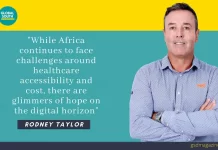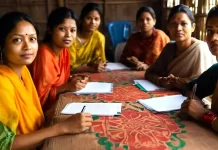By Victoria Peel Yates
Love it or hate it, development aid is an inescapable fact of the twenty-first-century development agenda. From the focus on growth of the 1960s, the poverty-driven programmes of the1970s, the failed structural adjustment of the 1980s, and the ‘good governance’ agenda of the 1990s, to the present, when aid has become part of popular culture. Aid is cool. Popularised by the ever-smugger aging Irish rock stars Bono and Sir Bob Geldof, aid is enjoying its heyday. Or is it?
More than a decade into the twenty-first century, and one of the most heated debates in development surrounds the effectiveness of the aid agenda. We are bombarded on a daily basis with appeals for donations, particularly from organisations working in sub-Saharan Africa, and are led to believe that making contributions is the ‘right’ thing to do.
Philanthropists such as Bill Gates, whose eponymous Foundation has taken it upon itself to develop a malaria vaccine, regularly make the headlines for their large-scale hand-outs. Sir Bob himself continues to organise concerts to raise awareness of and funds for Africa’s plight, as well as advising on Tony Blair’s Commission for Africa and regularly appealing to G8 leaders. The glamorisation of aid has led us to believe, unquestioningly, that it is an inherently ‘good’ thing.
However, this view has caused controversy amongst development scholars, some of whom have argued that what Africa in fact needs is less aid, not more. They contend that flooding African economies with aid encourages corruption and dependency, which in turn leads to inefficient economic management and a lack of incentives for countries to develop; for, if they do, the flow of funds will dry up and eventually stop altogether.
Furthermore, the conditions imposed by donor governments on organizations have rendered it virtually impossible for recipient countries to meet the demands placed upon them. Even more polemic is the accusation that international organisations are inefficient in their distribution of aid, and that funds often do not reach their target, the most needy and vulnerable people in some of the world’s poorest developing countries. This was dramatically demonstrated recently by the ‘Live Aid scandal’: the revelation that funds raised by the high-profile event were reputedly distributed among rebel leaders and used to arm rebel fighters, an accusation which Sir Bob, of course, vehemently denies.
The golden age of aid seems to be in jeopardy; perhaps what is needed is a revolution in the system of aid delivery. And what better country to look to for revolutionary inspiration than Cuba? Despite the hardships faced by the Caribbean’s largest island since the collapse of the Soviet Union, Castro’s Cuba has remained dedicated to helping other developing countries, particularly those emerging from the clutches of colonialism.
Renowned for having one of the best health and education systems in the world, what Cuba lacks in financial capital it makes up for in human capital. And it is this human capital that Cuba exports to other developing countries, a system which has come to be known as ‘Cuban internationalism’.
You May Also Like:
Cuban internationalism has two main foci: humanitarian disaster relief, and health and education. Cuban medical and volunteer teams are often quick to arrive on the scene of major natural disasters, although you would be forgiven for not knowing that Cuba was in fact among the first countries to send doctors and aid workers to earthquake-stricken Haiti earlier this year; this fact was totally ignored by the international press.
Those in need of serious medical attention, such as victims of the Chernobyl disaster, have been brought to Cuba to receive free treatment, and hundreds of foreign nationals receive free medical training in Havana.
Aid has a distinctly political agenda, and critics of Cuba have accused it of trying to gain political allies through its system of internationalism. However, Cuba has in fact offered support to countries with which it is not politically aligned. It has offered disaster relief to regimes with which it does not see eye to eye, such as Nicaragua and Chile. Following the devastation of New Orleans by Hurricane Katrina in 2005, Havana offered to send medical personnel and aid workers to the affected area, an offer that was declined by Washington.
In 1998, the aftermath of Hurricane Mitch, which wrought havoc throughout the Caribbean and Central America, prompted the establishment of the Latin American School of Medicine (ELAM) in Havana. The aim of the ELAM was to provide medical training to talented students from underprivileged backgrounds across Latin America, students to whom the doors of education would otherwise be closed.
The ELAM now also accepts students from the Middle East and North Africa, and graduates of the School are internationally recognised as highly trained doctors, even in the US.
Critics of Cuban internationalism point out that these newly trained doctors often return home to countries where the lack of medical infrastructure makes it difficult for them to practice. This criticism is not unfounded, but it should be noted that as a system of aid it seems to be far more sustainable than the continuous stream of ever-increasing financial aid flows espoused by Western governments.
Periodic reincarnations of the aid system have tried and failed to put right what has gone wrong before. The simple fact is that this model is not working. By taking a leaf out of Cuba’s book, the focus of the Western aid system could be shifted towards sustainability and capacity building through training, health, and education, with less emphasis on financial flows.
Restructuring the aid system and changing the way in which we view aid is a challenge for the twenty-first century. Despite the glamorous appeal of charitable giving and the dissemination of the aid ethic in popular culture, it is increasingly clear that aid does not work. Cuban internationalism seems to offer a viable alternative, with the potential for scaling up if Western governments are willing to ditch the accepted doctrine and start an aid revolution.
(Victoria worked as our country correspondent for Argentina from October 2010 to January 2014. This article originally appeared in Global South Development Magazine’s Oct-Dec 2010 edition)











